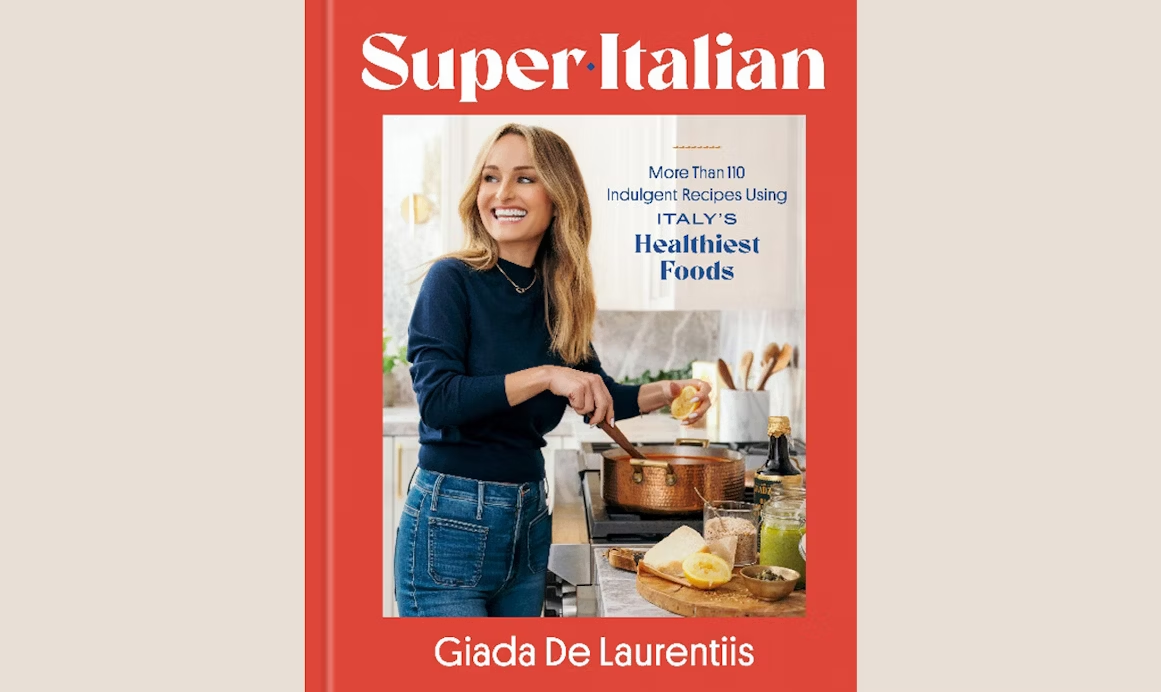The Buttenweiser Hall is packed, humming with anticipation. And then, in strides Giada De Laurentiis—poised, practiced, a smile built for the spotlight. On stage, waiting to greet her, is Melissa Ben-Ishay, the mastermind behind Baked by Melissa. The occasion? A celebration of Super Italian, Giada’s latest cookbook. The 92nd Street Y is hosting, and the theme of the evening is clear: an Italy stripped down to its essence, where flavor reigns over excess.
One hundred and ten recipes, each a rediscovery of what makes Italian cooking sing. The book moves with a light touch—ingredients matter more than quantity, simplicity is the goal. This isn’t a cuisine drowning in cream or blanketed in parmesan. It’s an Italy that lets its food breathe.
For Giada, food is a birthright. Raised in Rome, she comes from a dynasty steeped in cinema. Her grandfather, Dino De Laurentiis, shaped an era of filmmaking, producing more than six hundred films. Her grandmother, Silvana Mangano, was muse to Visconti and Pasolini, adored by De Sica, Monicelli, Lizzani. But it wasn’t Hollywood that shaped her palate—it was home.
When she arrived in the U.S., Italian food was something else entirely. “I remember going to a friend’s house for dinner”, she says, laughing. “She served me pasta with cream, butter, and mountains of cheese. I asked what it was, and she said, ‘Fettuccine Alfredo! 100% Italian!’ I had never seen anything like it.” She quickly realized that words wouldn’t be enough to change the perception of Italian cuisine—she had to show people. So she started simplifying, paring things down, stripping away the unnecessary. No heavy-handed garlic frying in oil until burnt, no thick sauces drowning the plate. Super Italian is an invitation to rethink tradition, to approach it with clarity instead of nostalgia.

And at fifty-four, with a career spanning books, restaurants, television, she could stop. But she won’t. Lately, she’s been in Italy more often—visiting producers, studying ingredients, piecing together the puzzle of how food intersects with well-being. She even launched Jotzi, a platform devoted to high-quality Italian products. Olive oil, she says, is a prime example. “A great olive oil changes everything. And yet, in the U.S., people often settle for whatever’s on the shelf without thinking twice”.
The book leans into that philosophy. Sauces aren’t just sauces—they’re tools, amplifiers of flavor that don’t weigh a dish down. “You only need three perfect ingredients to make something extraordinary”, she says. Take her spaghettino al limone: no butter, no cream. Just lemon juice, garlic, olive oil, and pasta water swirling together into something effortlessly luscious. Even lasagna gets re-imagined—gone is the heavy ground beef and béchamel, replaced with chicken sausage and grilled vegetables. “You don’t have to pile things on to get flavor,” she insists. “Italy teaches us that”.
But some things stay exactly as she remembers them. “Pastina with butter and parmesan”, the chef says. “Every Italian child’s first dish. It was the first one I made for my daughter, Jade”. And then there are the playful departures, like chocolate pasta—an idea born from childhood nostalgia, a nod to Nutella on bread, the joy of sweet meeting savory. Her version is more refined: a hazelnut cream with barely-there sugar, dark chocolate, a whisper of parmesan. “It might sound odd,” she grins, “but it works”.
An entire chapter is dedicated to balance. With time, she’s learned to listen to her body, to eat with intention, to care about what makes her feel good. Yoga, walks, supplements—yes. But more than that? Slowing down. “In the U.S., people eat in a rush, at their desks, in front of a screen. In Italy, meals are sacred. They’re about family, conversation, the act of being present”. Later, as she signs books, someone asks the inevitable question: her favorite recipe? She pauses, considering. She could say lasagna, crostata, pastina. But instead, she smiles. “Spaghetti aglio e olio, If you mess that up, you’ve messed up everything”.












